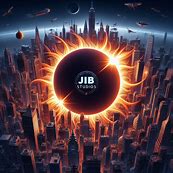Do I need special solar eclipse glasses to view the 2024 April 8 solar eclipse or will my sunglasses work?
Absolutely! When viewing the 2024 total solar eclipse, it’s crucial to prioritize eye safety. Here’s what you need to know:
Eclipse Glasses:
- Wear eclipse glasses that comply with the ISO 12312-2 international standard. These specialized glasses are designed to protect your eyes during solar events.
- Eclipse glasses are thousands of times darker than standard sunglasses and provide the necessary shielding from harmful solar rays.
- Never view the sun directly without proper protection.
Camera Lenses, Binoculars, and Telescopes:
- Do NOT use eclipse glasses or handheld viewers in conjunction with cameras, binoculars, or telescopes.
- These optical devices require different types of solar filters.
Recommended Gear:
- Consider getting ISO-approved solar eclipse glasses for safe viewing.
- Kesseph Solar Eclipse Glasses (5-Pack): These ISO-approved glasses come in a pack of 5, ensuring everyone in your family can safely observe the eclipse. They even include a filter for smartphone cameras so you can capture photos without damaging the lens.
- Celestron 10x25 EclipSmart Solar Binoculars: Enhance your view with these binoculars. They meet ISO safety standards, allow neutral-toned viewing, and offer 10x magnification. Plus, they’re weather-resistant and have fold-down eyecups.
Remember, these precautions are essential to protect your eyes while experiencing the awe-inspiring phenomenon of a total solar eclipse. Enjoy the magic of the celestial dance safely! 🌞🌑
Per nationaleclipse.com this is a list of places to view the eclipse:
- Dallas: Partial eclipse begins at 12:23 p.m. CT and totality at 1:40 p.m.
- Little Rock, Arkansas: Partial eclipse begins at 12:33 p.m. CT and totality at 1:51 p.m.
- Cleveland: Partial eclipse begins at 1:59 p.m. ET and totality at 3:13 p.m.
- Buffalo, New York: Partial eclipse begins at 2:04 p.m. ET and totality at 3:18 p.m.
- Lancaster, New Hampshire: Partial eclipse begins at 2:16 p.m. ET and totality at 3:27 p.m.


